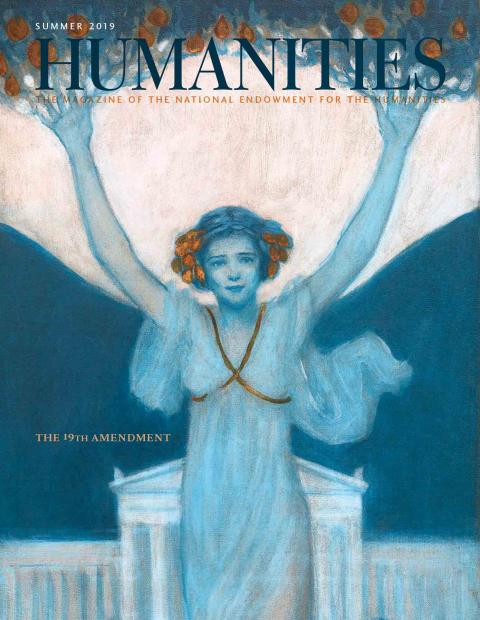The humanities have the power to heal.
That’s Sherry Paula Watkins’s message. And, after spending a few minutes with the executive director of the North Carolina Humanities Council (NCHC), you’re persuaded.
Watkins speaks urgently about the “cultural anxiety” many Americans are feeling now, yet she doesn’t feel hopeless in the face of it. She’s an optimistic leader on the front lines of a movement to encourage civility in conversation. This marathon runner (she completed a Rock ‘n’ Roll Marathon in Phoenix and a half-marathon in Charlotte) knows change doesn’t happen overnight. She’s willing to play the long game.
“We don’t even listen to ourselves anymore,” she says. “And you have to listen in order to find your own voice. Besides, hearing someone else’s story broadens your perspective.”
Empathy is what’s missing from our discourse—at the water cooler, in the town square, online—and Watkins believes the humanities can help bring it back. “Empathy,” she says, “helps build community.”
That’s not just lip service.
The council’s programming helps build bridges of understanding. For example, “Can We Talk?,” a two-part community forum in Charlotte, has helped participants stop talking past and over each other. The program aimed to demonstrate that it is possible to disagree gracefully.
The nonpartisan, free-to-the-public event this March was part of the council’s yearlong initiative “Journalism and Media Literacy: Fostering Informed Citizens.”
That’s just one part of the council’s programming, which strives to reach every county in the state and places a special emphasis on impacting rural populations. (North Carolina has one of the largest rural populations of any state in the nation.) The staff spends “innumerable hours” helping people over the phone apply for grants.
The council, based in Charlotte, is always working, Watkins says, to “adapt to an ever-changing culture, stay relevant and informed by many sectors.”
It’s a tall order for a staff of five, but, with support from the 22-person volunteer board, it works.
Facilitating healthy, productive dialog is one way the council fulfills its mission of making the humanities a foundation of life in North Carolina. Fostering a love of reading is another means to that end.
In 2018, the council began operating the North Carolina Center for the Book, an affiliate of the Library of Congress and a partnership with the State Library of North Carolina. “Letters about Literature” is one part of a national competition that invites students in grades 4 through 12 to write letters to authors whose work has made a significant impact on them.
The council was one of 13 state councils to pilot a veterans’ reading group in 2014 that continues today. This was followed by a council grant program called “Standing Together: The Humanities and the Experience of War,” a 2015 effort that was supported by NEH’s Standing Together initiative.
One of the projects funded by the council’s initiative was the brainchild of an Asheville VA hospital physician, who started a program for veterans to learn to write about their service. Many of the 30 veterans suffering from PTSD who participated had never written about their Vietnam experiences.
That group, facilitated by North Carolina’s former poet laureate and former NCHC trustee Joseph Bathanti, empowered these veterans to write about their experience of war. The program went on to become its own organic creation.
The veterans came to call their group “Brothers Like These.” Watkins was in the audience for one of their public readings. “It will bring you to tears to hear such a personal account of their service,” she says. “The loyalty these men have to each other because of their shared bond is striking.”
Watkins took the helm of the NCHC in 2013 when the council was still based in Greensboro. The headquarters then relocated to the state’s largest city in 2015. But Watkins’s work in the state culture business dates back to 2001. Before moving to North Carolina, the Hartsville, South Carolina, native served as assistant director and South Carolina Book Festival director at SC Humanities.
She reads constantly and always has five or six books—novels and nonfiction—going. She won’t pick a favorite (“I used to be the director of a book festival,” she said. “I can’t choose just one!”), but will say she’s recently enjoyed Brené Brown’s Dare to Lead and David Brooks’s The Road to Character.
The NCHC advocates lifelong learning, and its executive director walks the walk. “I am always,” she admits, “the student with my hand up.” She’s also become known on the job as a sticky-note addict. “I can build entire walls” out of them, she says. It’s her favorite way to brainstorm.
“The pace we keep today is isolating,” she says. “But the humanities can bring us joy and give us space to breathe.”
They’re the antidote for our time.
TELL ME MORE, SHERRY
Favorite historic site in North Carolina? Cape Lookout Lighthouse on the Cape Lookout National Seashore. Your typical day off? Run as far as I can through the woods, walk dog as far as she wants, a session of Power Vinyasa Yoga mixed in with a project requiring my power tools. And then to end the day, taking in the beauty of a sunset with a nice glass of Old World red wine. What’s your super power? I can fly over buildings, but my kryptonite is that I have no sense of direction unless it’s at sunset! Seriously, creative enterprising with vision to see what is possible, mixed with identifying obstacles to remake a successful infrastructure for success. Book(s) you loved growing up? Biographies of pioneering individuals who overcame obstacles.


